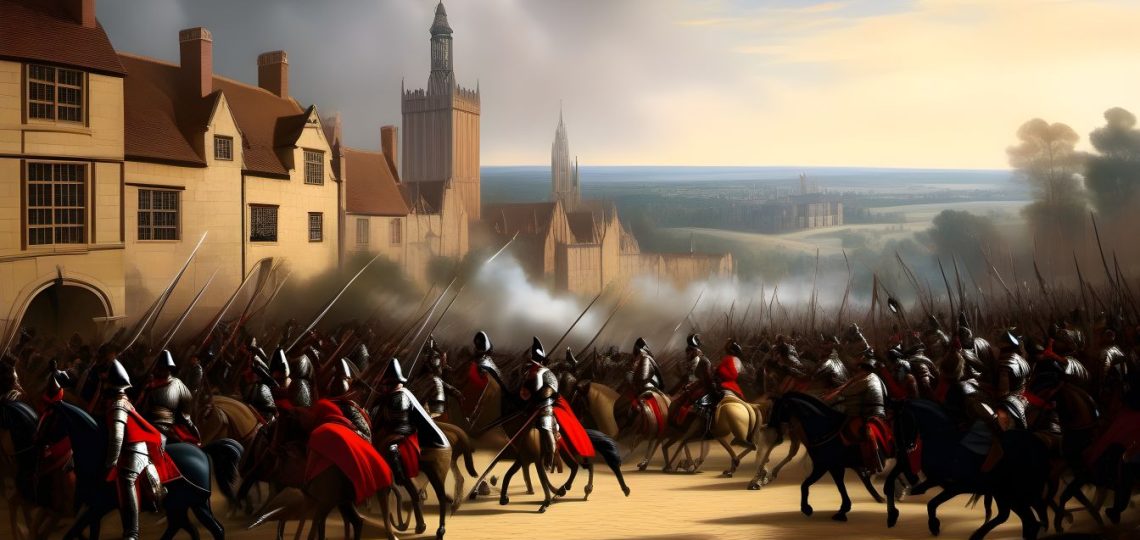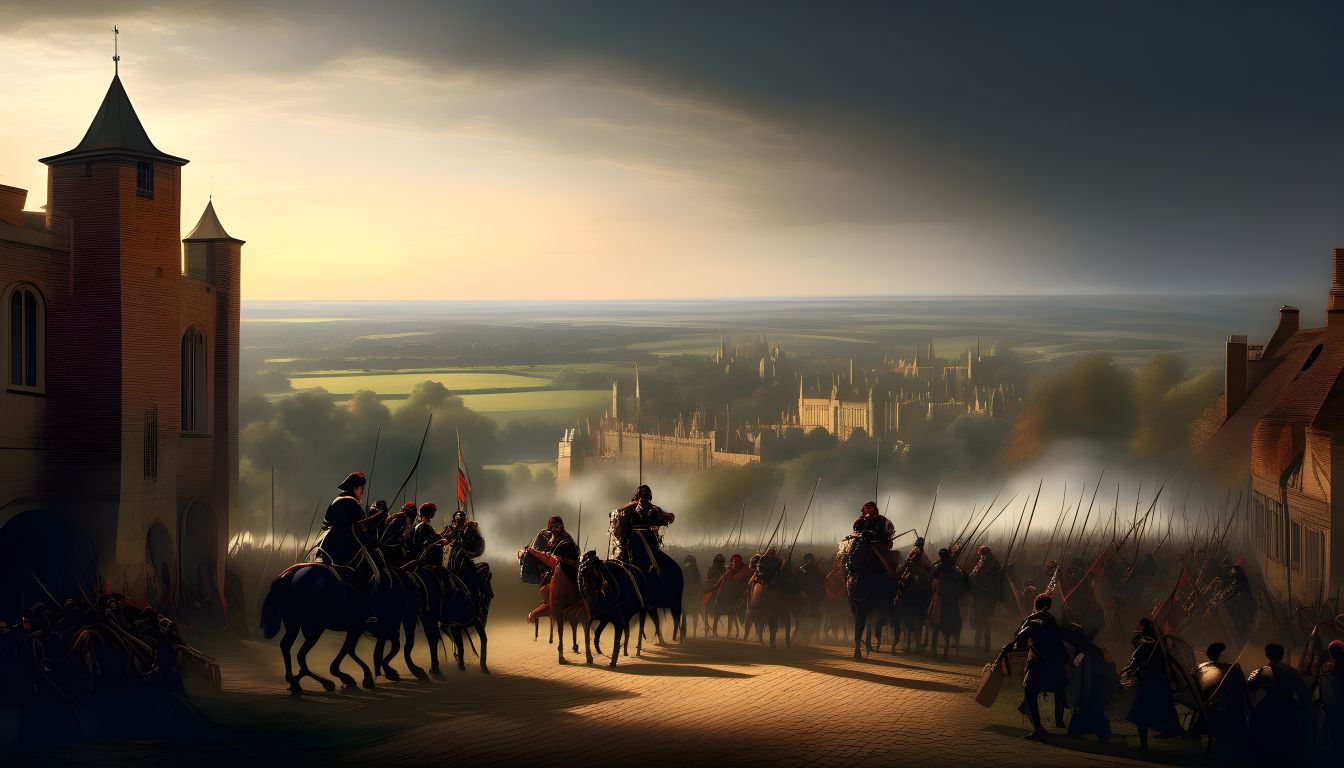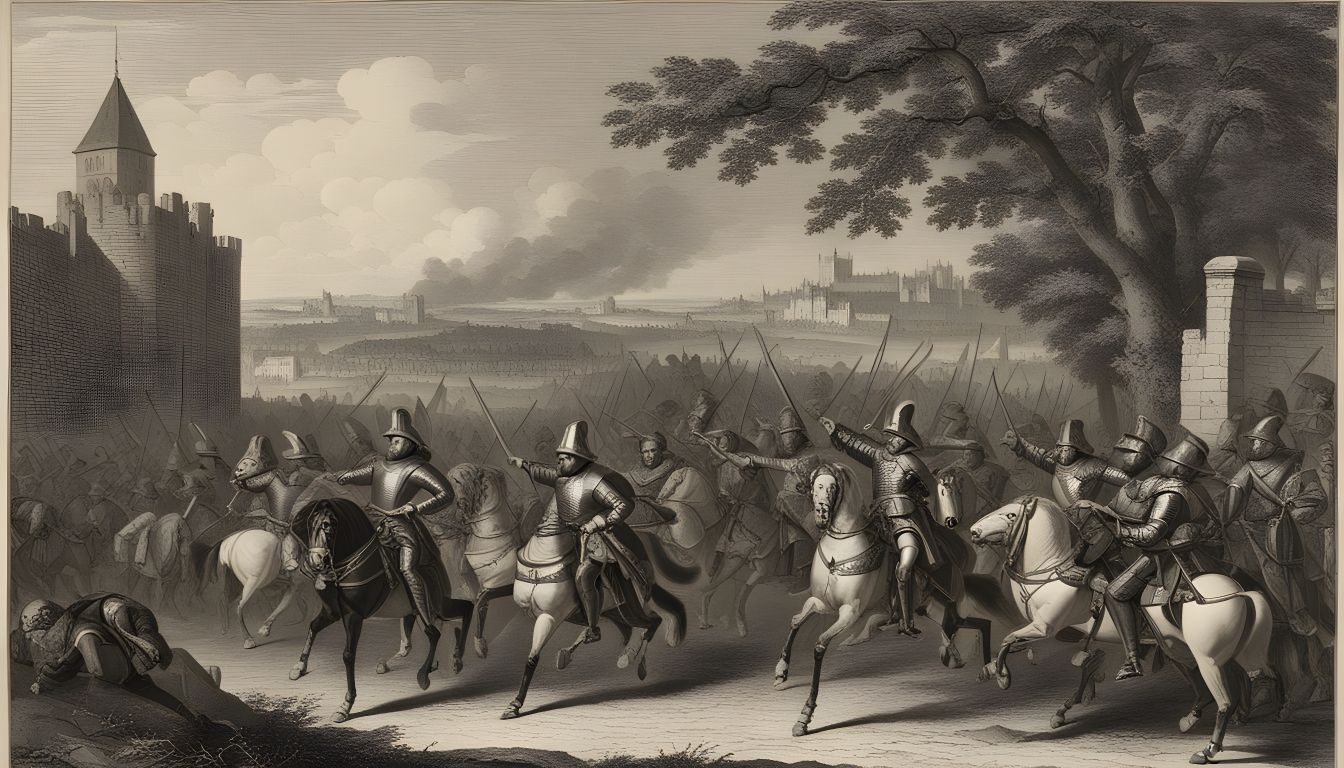
Warwick’s Role in the English Civil War
- Introduction
- The English Civil War (1642-1651) was a pivotal moment in British history, characterized by a bitter struggle between Parliamentarians (Roundheads) and Royalists (Cavaliers) for control of England. While often overshadowed by larger cities like London and Oxford, Warwick played a crucial role in this turbulent period, contributing significantly to the war effort. In this article, we will delve into Warwick’s role in the English Civil War, exploring its strategic importance, key battles, and lasting legacy.
- Strategic Significance
- Warwick’s Geographical Advantage
- Situated in the heart of England, Warwick’s central location made it a strategic hub for both Royalists and Parliamentarians. Controlling Warwick meant controlling key transportation routes and access to vital resources.
- Fortifications and Defensive Measures
- Warwick’s medieval castle, strategically perched on the River Avon, became a symbol of power during the war. Its formidable defenses and Royalist occupation made it a significant stronghold.
- Warwick as a Supply Base
- Warwick served as a crucial supply base for Parliamentarian forces, providing troops with essential provisions, ammunition, and equipment. Its role in logistics was pivotal to the war effort.

- Warwick served as a crucial supply base for Parliamentarian forces, providing troops with essential provisions, ammunition, and equipment. Its role in logistics was pivotal to the war effort.
- Warwick’s Geographical Advantage
- Key Battles
- The Siege of Warwick Castle (1642)
- In September 1642, the Royalists under Sir William Dugdale laid siege to Warwick Castle. This marked one of the earliest confrontations in the war. The Parliamentarians, led by Sir Edward Peyto, defended the castle valiantly until reinforcements arrived, ultimately breaking the siege.
- The Battle of Edgehill (1642)
- Although not fought on Warwick’s doorstep, the Battle of Edgehill (1642) had a profound impact on the town. It was the first major battle of the war and took place just 20 miles from Warwick. The conflict highlighted the brutality and uncertainty of the war.
- Royalist Occupation
- Throughout the war, Warwick Castle was intermittently occupied by both Royalist and Parliamentarian forces. The shifting control of this iconic fortress reflected the ongoing struggle for supremacy in the region.
- The Siege of Warwick Castle (1642)
- The Legacy of Warwick in the English Civil War
- Historical Tourism
- Today, Warwick Castle stands as a popular tourist attraction, offering visitors a glimpse into its turbulent past. The castle’s well-preserved state and historical reenactments draw in history enthusiasts from all over the world.
- Local Memorials and Commemorations
- Warwick commemorates its role in the English Civil War through various memorials and events. These serve as reminders of the sacrifices made by the town’s residents during this tumultuous period.
- Historical Research and Education
- Warwick’s connection to the English Civil War continues to inspire historical research and education. Local universities and institutions delve into the archives, shedding light on lesser-known aspects of the conflict.

- Warwick’s connection to the English Civil War continues to inspire historical research and education. Local universities and institutions delve into the archives, shedding light on lesser-known aspects of the conflict.
- Historical Tourism
- Conclusion
- While Warwick may not have been a central stage for major battles in the English Civil War, its strategic importance, fortifications, and role as a supply base were indispensable to the overall war effort. Today, the town’s historical legacy lives on through its well-preserved castle, educational programs, and the ongoing fascination with this critical period in British history.
For more in-depth information on Warwick’s role in the English Civil War, you can explore Warwick Castle’s official historical resources, which provide detailed insights into the castle’s wartime history. Additionally, the British Civil Wars, Commonwealth and Protectorate, 1638-1660 section of British History Online offers comprehensive historical records and documents related to this period.